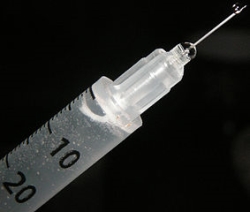The dangers of plastic surgery addiction
08 October 2014
By Plastic Surgeon Dr Dirk Kremer.
 Recently, I've been concerned about the lengths that some patients will go to in order to make their plastic surgery dreams a reality. When you are a cosmetic surgeon, there are numerous moral and ethical issues you may face when sitting down for a consultation with patients: you have to consider what feature the patient wants to change, why they want to change it, and whether they're healthy enough to withstand surgery, both physically and mentally.
Recently, I've been concerned about the lengths that some patients will go to in order to make their plastic surgery dreams a reality. When you are a cosmetic surgeon, there are numerous moral and ethical issues you may face when sitting down for a consultation with patients: you have to consider what feature the patient wants to change, why they want to change it, and whether they're healthy enough to withstand surgery, both physically and mentally.
I've written before about the risks and benefits involved when combining multiple cosmetic surgery procedures, which is an option that should only be considered if the operated areas are easily combined, and always planned in consultation with your surgeon. There have, however, been some reports where patients are undergoing as many as 10 plastic surgery treatments in one day, demonstrating that some people are willing to ignore industry guidelines if they get in the way of what they want to achieve. It's a worrying realisation, but it also begs the question: how far will people go to improve their looks, and at what point does a desire for cosmetic surgery become an addiction?
A threat to the industry's improving reputation
A 2013 review into cosmetic interventions by the Department of Health revealed the value of the UK plastic surgery industry to be £2.3bn in 2010, a figure which has steadily increased in the years since and is expected to rise to £3.6bn by 2015. These figures indicate that across the UK, more and more people are turning to cosmetic procedures to improve both their appearance and self-confidence. This is fantastic news for the industry, and while I'm hopeful that the industry will continue to help those in need, I feel it is important to also remind people of the dangers of undergoing excessive amounts of cosmetic surgery, or of having plastic surgery for the wrong reasons.
The greater availability of plastic surgery has unfortunately led some people to view plastic surgery as an instant fix for their self-esteem issues, and it is these patients who are often unhappy with the way they look. This can mean that instead of choosing simply to accentuate their natural beauty, patients decide to drastically alter their entire appearance over a short period of time, which could develop into an addiction to plastic surgery. Whilst cases such as these are admittedly quite rare, they are extreme enough to warrant maximum exposure in the media, painting a negative image of the industry that qualified plastic surgeons such as myself seek to dispel.
Patient health concerns
Addiction is a term more closely associated with drugs such as alcohol or caffeine, however plastic surgery addiction is a very real concern, and one that often arises from an individual's overwhelming desire to constantly adapt to the ever-changing image of beauty. Recent examples of plastic surgery addicts include a Californian woman who has undergone over 200 cosmetic procedures (75 of which were 'backstreet' operations performed in unregulated clinics), and a British woman who believes her obsession began with an ear pinning operation at the age of six, and who has since spent over £25,000 transforming her body.
There are a number of factors that could contribute to an addiction to surgery, from an ever-present focus upon the way we look in the media, to a permanent lack of self-esteem. While plastic surgery can help improve the lives of patients by providing them with an appearance they can be happy with, those addicted to surgery risk developing severe physical and psychological issues: physically, stress inflicted upon the body can cause permanent, irreparable damage to the skin and muscle tissue, while mentally, addiction can lead to reckless and dangerous behaviour carried out without complete consideration. If, for example, a plastic surgeon refuses to conduct the surgery – a right that all surgeons should use if necessary – addicts will often resort to visiting unregulated clinics and surgeons, putting themselves at risk of infection or even death.
While media coverage of individuals addicted to plastic surgery may negatively affect the image of the industry, what I find most concerning is the fact that these individuals fail to consider the long-term effects of repeatedly harming their bodies through unnecessary surgical procedure. I believe that we all have an inner beauty, one which plastic surgery can be used to help bring forth, and I am continually disappointed to hear that there are unregulated plastic surgeons operating without concern for the safety of their patient or the long-term effects on their physical and mental well-being.
When a patient comes to my practice to discuss plastic surgery, I ensure their safety and well-being are at the forefront of any decision I make. If you're considering a cosmetic procedure at Harley St Aesthetics please contact us today to arrange an initial consultation, where we'll discuss why you want surgery and the options open to you.
Virtual Consultations
Dr Kremer is now accepting virtual consultations, via Skype or WhatsApp. If you would like a virtual consultation, or would like more information, simply get in touch with us via phone, email or through our contact form and we will schedule a date and time for your consultation.



